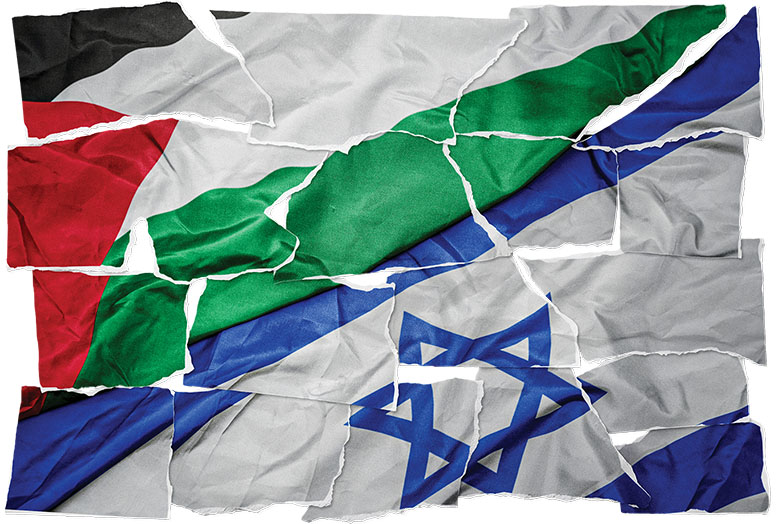Iowa’s Rapid Response History Course Tackles Hot-Button Topics

When violence erupted in Israel and Palestine last fall, the flood of information online—like for any political topic—quickly made it difficult to discern fact from fiction. Students at the University of Iowa, fortunately, had experts they could turn to for a deeper understanding of the conflict.
Since 2017, the UI’s Rapid Response History lecture series has brought together faculty experts from across disciplines to dive into complex topics and create an environment where students can engage in a healthy and informed conversation about current events. “As faculty members at a public university, we consider it our civic responsibility to do this work,” says Elizabeth Heineman, a professor and scholar in history and gender studies at Iowa.
Together with history department chair Colin Gordon, Heineman developed the most recent Rapid Response History course this past spring to give context around the ongoing Israel-Palestine conflict. Students studied the history of Zionism leading to the 1948 founding of Israel, examining the roles of Britain and the U.S. in its establishment. They also learned about the responses of Palestinian communities and the long-simmering violence leading to the current state of affairs.
“You can be passionate and also be someone who's listening and learning.” —Elizabeth Heineman
Heineman emphasized the importance of classroom environments for students to understand the historical context for what they’re seeing on social media. “When big things are happening in the world,” says Heineman, “students are so desperate for an education. They come into class saying, ‘I know this is huge, and I’m seeing a lot online, but I’m not sure what to trust.’ They need more information.”
In the past, the lecture series has covered topics such as the #MeToo movement, the Jan. 6 attack on the U.S. Capitol, and the 100th anniversary of women’s suffrage. The courses benefit from cross-departmental collaboration with professors conducting research in these areas. “We’re not just teaching from textbooks,” says Heineman, “but we’re teaching from our own research.”
When it was time to book lecturers for the Israel-Palestine course, Heineman tapped into Iowa’s rich bank of expertise. This brought a diverse set of voices to the class, including law professor Brian Ferrell, an expert on the international laws of war; theatre arts professor Lisa Schlesinger (89MFA, 95MFA), who worked with youth community theater in the West Bank; UI ambassador-in-residence Ron McMullen (82MA, 85PhD), who brought his U.S. Foreign Service experience to discuss diplomacy in the region; and religious studies professor Ahmed Souaiaia, who spoke on Islamic perspectives on human rights.
In a period of heightened tensions and politicization, Heineman hopes the lecture series helps students sift through information without letting emotion overtake their ability to participate in civic discourse. “We don’t have to leave emotion out of it; emotion is a major driver in politics,” she says. “You can be passionate and also be someone who’s listening and learning.”
